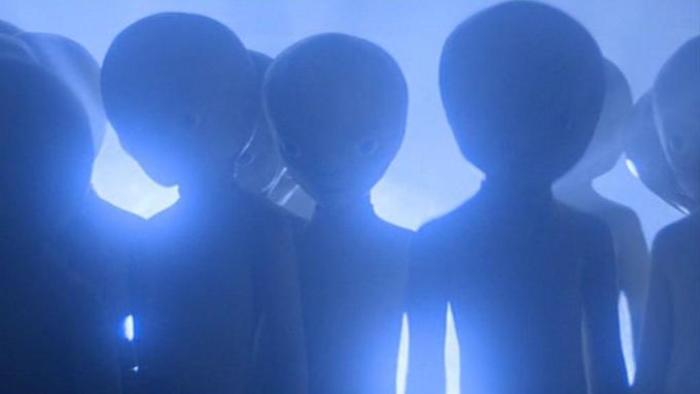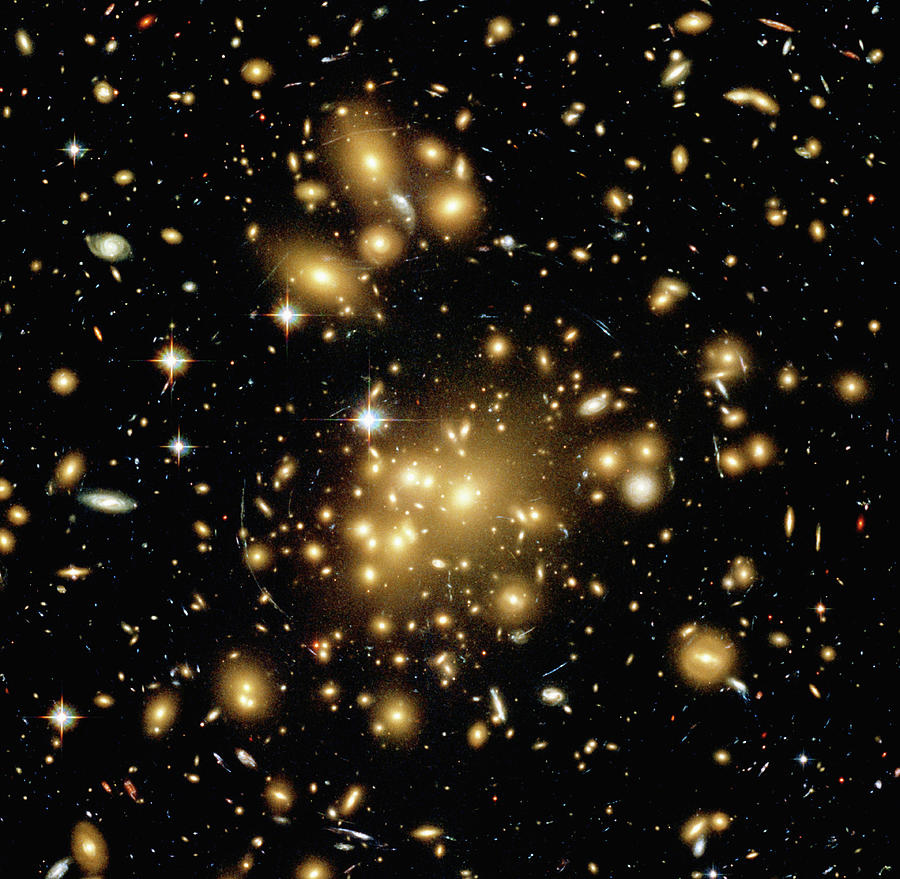

The “If” in my headline above is doing a lot of work in that sentence. I’ve long been skeptical that reports of UFOs were signs we were being visited by advanced alien races. My suspicion has been that anything that couldn’t be explained by natural phenomena was most likely top secret, experimental projects by our government and others.
Please understand, that’s still my presumption.
I was also open to the idea that some of the phenomena people observed was spiritual (demonic) in nature. But if that was the case, no physical remnants of spacecraft or actual aliens would ever be located.
Nevertheless, there are some serious, credentialed, non-loony folks currently saying that our government, and other governments currently hold and are studying pieces of materials and technologies that seem to be of “non-human origin.”
For example, this week an article appeared in the online magazine The Debrief titled, “INTELLIGENCE OFFICIALS SAY U.S. HAS RETRIEVED AIRCRAFT OF NON-HUMAN ORIGIN.” The site covers news in the area of tech, defense, and the aerospace industry.
The claim is that our government and a few others have been secretly hoarding and studying these materials in hopes of gaining a military advantage over the others. A new “Cold War” the article called it.
If the assertions in that article are ultimately shown to be true . . . again, note the IF . . . then it will trigger shockwaves throughout Christianity that will make Charles Darwin’s case for a very old earth and gradual development of lower lifeforms into higher ones look like a minor ripple.
As a Christian teacher, it seems almost irresponsible not to at least ponder the implications of such a revelation. So back to the question in the title of this post: “If Proof of Alien Intelligence is Revealed: What Then for Us Christians?”
Not surprisingly, I’m far from the only one pondering this question right now. Here’s a smart blogger I follow, Daniel Sinclair, examining it in a recent post titled: Will Christianity Collapse if Intelligent Aliens are Discovered? And another, Evan Minton, with: What Would Aliens Mean For The Christian Worldview? Both are worth your time. I’ve given this some thought as well. And I have incorporated a few of their observations into mine.
So let’s run a thought experiment . . .
Let’s say indisputable proof emerges next week that advanced, intelligent life exists on a planet other than earth. What then? Will the Christian faith or worldview be critically undermined or invalidated?
The answer is: It depends, but probably not.
The purpose of the ancient book of Genesis—particularly the opening three chapters—was not to answer 21st Century questions about the processes that brought the universe into being. It was to let the Israelite tribes (and ultimately you and me) know that the world and its people are not as God originally intended them to be. That something went terribly wrong. That creation is broken and we are broken. That there was a “Fall.” But . . .
The opening three chapters of Genesis also reveal that God immediately put into motion a plan to make right what had gone so terribly wrong. A plan that culminated in the arrival of another “Adam” who would begin to restore and repair what the first Adam had forfeited and corrupted.
So the Fall is presuppositional to the entire Christian faith. In fact, the late Charles Colson wrote that a biblical worldview had to contain three elements. Creation, the Fall, and Redemption.
What Genesis doesn’t tell us is . . .
the scope of the Fall. We know that mankind was affected. Catastrophically so. In the Genesis narrative, God’s pronouncement of the implications of what Adam and Eve had done makes that clear. We also see planet Earth impacted as well. “Cursed is the ground because of you . . .” (Gen. 3:17)
What is not clear is whether or not the entire universe was subjected to “the curse.” We know that entropy–the tendency of all matter and energy to decay, dissolve, and generally wind down—is a universal law of physics.

Is universal entropy an effect of the curse? That’s unclear. There is the line in Romans 8 about “all creation” groaning in anticipation of the revealing of the “sons of God.” (v. 22) But if . . . IF . . . God created other planets filled with life in this unimaginably vast universe, were they affected by the Fall as well?
God is just. And it would not seem just nor fair to have the rebellious failure on the part of one planet’s stewards bring a curse upon the innocent stewards of other planets.
Which presents a number of possibilities for our hypothetical aliens . . .
Possibility 1: The Fall of mankind on earth did not impact other inhabited planets (if there are any). This might explain why the (hypothetical) inhabitants of such a planet are so much more advanced than ours. Who knows how much the effects of the curse slowed down our advancement and development as a species. That would also mean such interplanetary travelers would be friendly and benevolent. Not unlike angels but, like us, would have natural material bodies and be able to reproduce.
Possibility 2: The Fall of mankind on earth DID impact other inhabited planets. This seems far less likely (or just) and it opens up a whole array of thorny questions. Did the eternally pre-existent God-the-Son, need to be incarnated as one of those other beings to redeem them, just as He had to become one of us? Or, since the Fall happened here, the Son only needed to be incarnated here, but it is now our responsibility to deliver the Good News to the inhabitants of other planets? After all, in the Great Commission, Jesus’ instructions were to preach the gospel “to all creation.” (pas ktisis in the Greek.) Those are the same Greek words Paul used in Romans 8:22 in saying that “all creation” groans to see the revealing of the sons of God. Would it be fair to have the inhabitants of another planet wait many thousands of years for our technology to make evangelizing them possible? Well, there are currently remote tribes on THIS planet who still haven’t been reached by missionaries, and they’ve been waiting 2,000 years.
Possibility 3: The non-terrestrial visitors are highly intelligent and advanced, but were not created “in the image and likeness of God” as Adam and Eve were. Over the centuries, many theologians have wrestled with the meaning of those words from Genesis 1:26-27. They call it the “Imago Dei.” I don’t believe they mean, necessarily that we look like God. I believe being His “image bearers” means we carry a spark of divine Life . . . His “breath.” But more importantly, that we also carry His seal of delegated authority. We represent Him. His intention was (and is) for His people to oversee the earth as His proxy rulers. That means this place belongs to us. But it also means it’s possible that any hyper-intelligent visitors that were NOT created Imago Dei lack the breath of God. This would make them a class of being we do not have here on Earth—essentially an animal that is smarter than we are.
None of these possibilities presents an existential threat to the Christian faith. As long as . . .
As long as we don’t make the mistake that many of my Christian fundamentalist friends have made in the past and continue to make. Namely, the belief that everything that IS has to have been mentioned explicitly in the Bible somewhere. And if it’s not mentioned in the Bible, then it cannot BE. And it if cannot be, then it’s a trick of the devil.
This is where such folks stood when the first dinosaur fossils began to emerge. They didn’t see dinosaurs in the Bible and therefore crafted elaborate explanations for why those fossils weren’t what they seemed to be. Once the evidence became undeniable, then fell back and dug in on new positions and twisted themselves into logical and evidentiary pretzels. All out of a (flawed, in my view) assumption about why God gave us the Bible and how we’re intended to read it.
So here’s where I currently stand . . .
“Currently” is the operative word in that subhead.
I suspect it takes, mathematically, a universe THIS big to end up with ONE place as perfect for life as this gorgeous blue marble is. Which means we’re alone in the material universe. Of course, the material universe is NOT all there is. Far from it.

Even though the current rumors and speculation swirl around individuals with much more credibility than the usual fringe fanatics who know “The Truth is Out There,” I’m still skeptical for reasons I won’t take the time to go into here.
But if I’m wrong, it won’t shake my faith. Not because I’m prepared to reject any and all evidence that doesn’t comport with my interpretation of Genesis. Not because I would close my eyes and stick my fingers in my ears shouting “LA LA LA . . . I can’t hear you.”
Like the two theologians whose blog posts I linked to above, I’m convinced such a revelation, no matter how unlikely I think it might be, presents no threat to authentic, historic Christianity.
I’m convinced the story the Bible is telling contains room for nearly any eventuality. There is nothing in the Apostle’s Creed, the Nicene Creed or any other ancient creed of the Church that would be negated by evidence of intelligent life on another planet.
By the way, I think about these things so you don’t have to.
